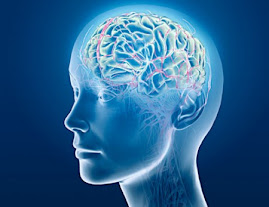Published: November 10, 2005
Jeremy Gray, Yale Univ
New Haven, Conn. — Meditation is known to alter resting brain patterns, suggesting long lasting brain changes, but a new study by researchers from Yale, Harvard, Massachusetts General Hospital, and the Massachusetts Institute of Technology shows meditation also is associated with increased cortical thickness.
The structural changes were found in areas of the brain that are important for sensory, cognitive and emotional processing, the researchers report in the November issue of NeuroReport.
Although the study included only 20 participants, all with extensive training in Buddhist Insight meditation, the results are significant, said Jeremy Gray, assistant professor of psychology at Yale and co-author of the study led by Sara Lazar, assistant in psychology at Massachusetts General Hospital.
“What is most fascinating to me is the suggestion that meditation practice can change anyone’s grey matter,” Gray said. “The study participants were people with jobs and families. They just meditated on average 40 minutes each day, you don’t have to be a monk.”
Magnetic resonance imaging showed that regular practice of meditation is associated with increased thickness in a subset of cortical regions related to sensory, auditory, visual and internal perception, such as heart rate or breathing. The researchers also found that regular meditation practice may slow age-related thinning of the frontal cortex.
“Most of the regions identified in this study were found in the right hemisphere,” the researchers said. “The right hemisphere is essential for sustaining attention, which is a central practice of Insight meditation.”
They said other forms of yoga and meditation likely have a similar impact on cortical structure, although each tradition would be expected to have a slightly different pattern of cortical thickening based on the specific mental exercises involved.
Co-authors include Catherine Kerr, Rachel Wasserman Jeffery Dusek, Herbert Benson and Metta McGarvey, Harvard; Douglas Greve, Brian Quinn, Bruce Fischl, Michael Treadway and Scott Rauch, Massachusetts General Hospital, and Christopher Moore, Massachusetts Institute of Technology.
NeuroReport 16: 1893-1897 (November 28, 2005)
Subscribe to:
Post Comments (Atom)



No comments:
Post a Comment